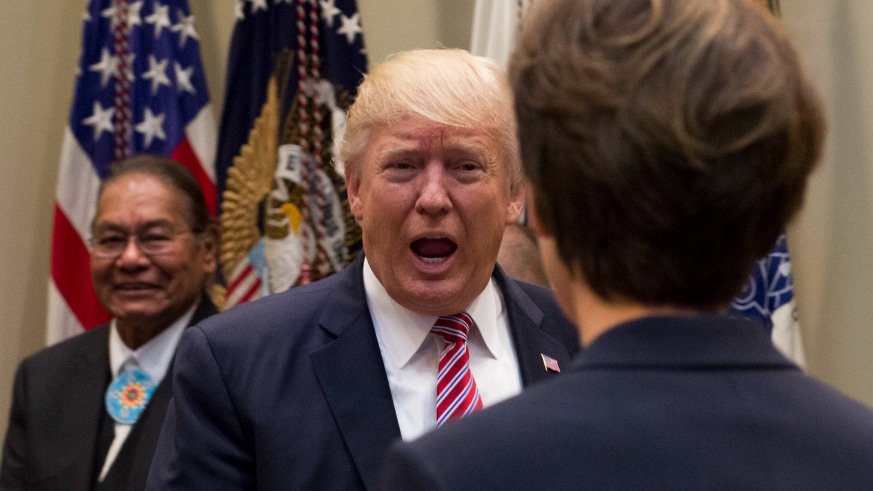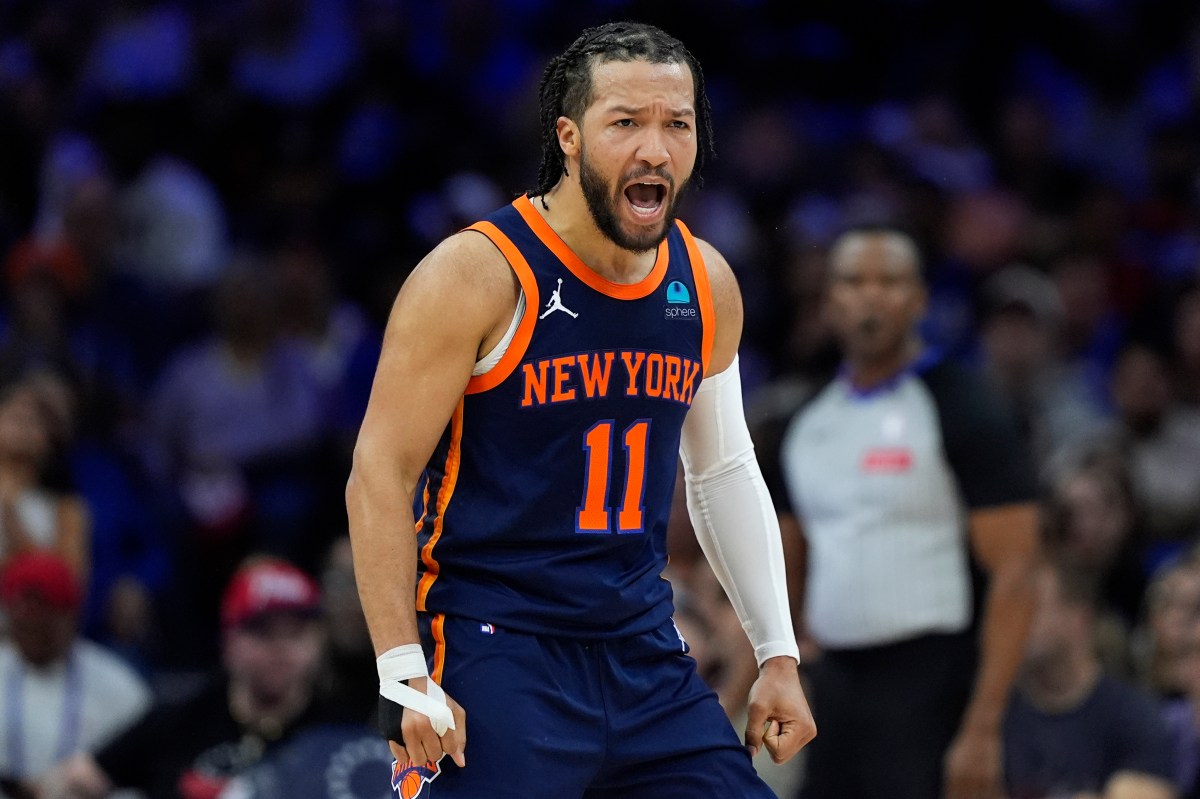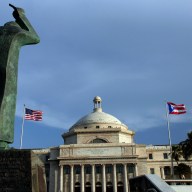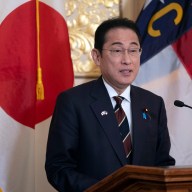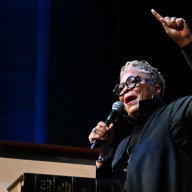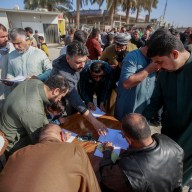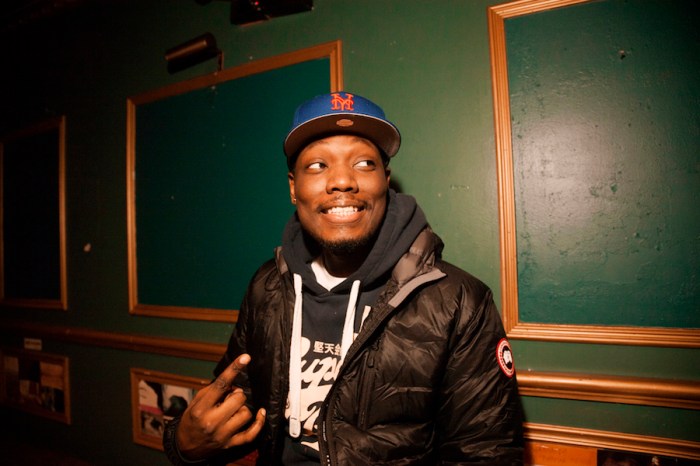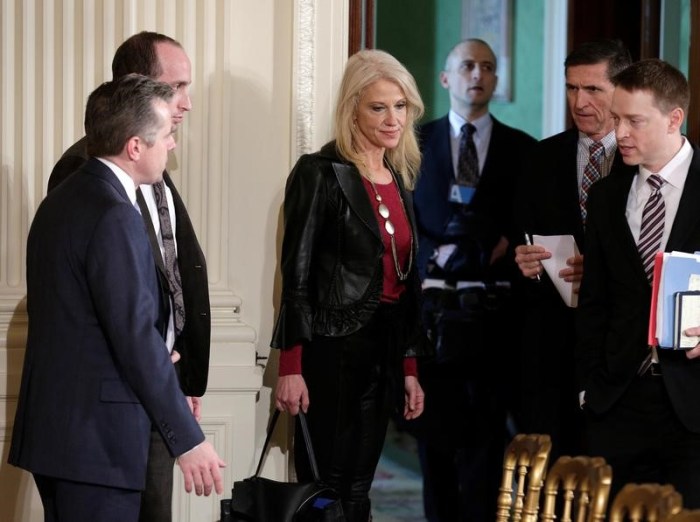Some Republicans and conservative analysts professed surprise at President Trump’s remarks about the domestic terror attack in Charlottesville, Virginia, in which he defended white supremacists. They shouldn’t have been. As his personal and professional history shows, Trump has launched, built and sustained his political career on racist speech and action. Here is an (unfortunately abridged) timeline.
1926: Trump’s father, Fred Trump, is arrested at a KKK rally in New York City
The Washington Post reported that in 1926, the New York Times noted that one Fred Trump was arrested in a brawl after a KKK march in which seven people were arrested, Trump Sr. being one of them. Asked about it in 2015 by the New York Times, Trump was evasive and untruthful, claiming his family didn’t live at the address in the 1926 report when the census showed he did. Wrote the Times reporter: “Mr. Trump’s barrage of answers — his sudden denial of a fact he had moments before confirmed; his repeatedly noting that no charges were filed against his father in connection with the incident he had just repeatedly denied; and his denigration of the news organization that brought the incident to light as a “little website” — shows his pasta-against-the-wall approach to beating down inconvenient story lines.”
1973: Discriminatory housing
The Justice Department sued Trump’s family real-estate business, alleging the Trumps practiced racial discrimination against black people looking to rent apartments. Donald Trump indignantly sued the Justice Department for $100 million. The Trumps then settled the original lawsuit with the Justice Department without admitting wrongdoing. Three years later, the Justice Department sued again, claiming the Trumps told black applicants that vacant apartments were not available to them.
1989: Central Park Five
Trump took out a full-page ad demanding the execution of five boys of color accused of raping a jogger in Central Park. He told CNN: “Of course I hate these people, and let’s all hate these people. Maybe hate is what we need if we’re gonna get something done.” The five boys were proven innocent. In 2016, Trump stood by his actions.
2010s: Birtherism
Trump came to political prominence by insisting that President Obama was born in Kenya and thus was not a legitimate president of the United States. In 2011, he claimed to have sent people to Hawaii to investigate: “I have people there who cannot believe what they’re finding.” He demanded Obama’s birth certificate. Obama produced the short form version of the document, and Trump says that wasn’t enough. Obama produced the long form. In 2016 on CNN, Trump said, “I don’t talk about it. You know why I don’t talk about it? Because once I talk about it, that’s all they want to write about. So I don’t ever talk about it.” The press obeyed.
2016: Calling Mexicans rapists
Compounding on the xenophobia stirred up by birtherism, Trump launched his official campaign calling Mexicans “criminals” and “rapists.” He later called them “bad hombres.”
2016: Judge Curiel
Trump said that Judge Gonzalo Curiel could not hear the fraud case filed against Trump University. “He’s a Mexican,” Trump told CNN. “We’re building a wall between here and Mexico. The answer is, he is giving us very unfair rulings — rulings that people can’t even believe.”
Curiel was born in Indiana. As a prosecutor in the ’90s, he aggressively went after Mexican drug cartels.
2016: Promising to build a wall on the Southern border
One of Trump’s signature campaign promises was to build a “big, beautiful” wall on the U.S. border and have Mexico pay for it. The current and former presidents of Mexico said no way, no day.
2016: Feuding with Khizr Khan’s parents
At the Democratic National Convention in 2016, the parents of a Muslim U.S. soldier who was killed in battle spoke about how he sacrificed his life for his country. His father held up the Constitution to chastise Trump for his xenophobia. Trump immediately went to battle, saying of Mrs. Khan in an ABC News interview, “If you look at his wife, she was standing there. She had nothing to say. She probably, maybe she wasn’t allowed to have anything to say. You tell me.” Mrs. Khan told the Washington Post she was unable to speak before a television audience of millions because of her grief.
2017: Muslim ban
Soon after taking office, Trump banned citizens of seven majority-Muslim countries from entering the U.S. People with legitimate U.S. visas were blocked at airport customs, leading to loud protests nationwide. Circuit courts struck down the ban several times before the Supreme Court ruled to allow a watered-down version temporarily over the summer.
2017: Charlottesville
Trump claimed that “many sides” were responsible for the violence following a white-supremacist rally that resulted in the death of 32-year-old Heather Heyer after a neo-Nazi rammed a crowd of protesters with his car. Two days later, he said there were “many fine people” on that side.
2017: Joe Arpaio
Mere hours after Trump’s universally condemned first speech about Charlottesville, it was reported that he is mulling a pardon for Joe Arpaio, a sheriff who the Justice Department found was guilty of the “worst case of racial profiling in history,” illegally detaining Mexicans even after the courts told him to stop. He was found guilty of criminal contempt of court.

